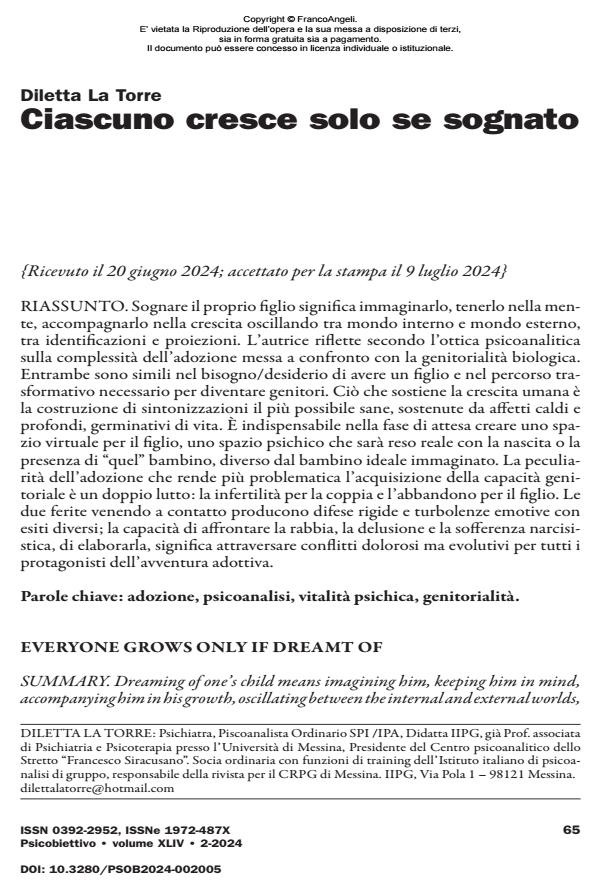Everyone grows only if dreamt of
Journal title PSICOBIETTIVO
Author/s Diletta La Torre
Publishing Year 2024 Issue 2024/2
Language Italian Pages 14 P. 65-78 File size 629 KB
DOI 10.3280/PSOB2024-002005
DOI is like a bar code for intellectual property: to have more infomation
click here
Below, you can see the article first page
If you want to buy this article in PDF format, you can do it, following the instructions to buy download credits

FrancoAngeli is member of Publishers International Linking Association, Inc (PILA), a not-for-profit association which run the CrossRef service enabling links to and from online scholarly content.
Dreaming of one’s child means imagining him, keeping him in mind, accompanyinghiminhisgrowth, oscillatingbetweentheinternalandexternalworlds between identifications and projections. The author reflects, from a psychoanalytic perspective on the complexity of adoption compared to biological parenthood. Both are similar in the need/desire to have a child and in the transformative path needed to become parents. What sustains human growth is the construction of attunements that are as healthy as possible, supported by warm and deep affections, germinating with life. It is essential in the waiting phase to create a virtual space for the child, a psychic space that will be made real with the birth or presence of “that” child, different from the ideal child imagined. The peculiarity of adoption that makes the acquisition of parental capacity more problematic, is a double bereavement: infertility for the couple and abandonment for the child. The two wounds coming into contact produce rigid defenses and emotional turbulence with different outcomes. The ability to deal with anger, disappointment and narcissistic suffering, to process it means going through painful, but evolutionary conflicts, for all the protagonists of the adoptive adventure.
Keywords: adoption, psychoanalysis, psychic vitality, parenting.
Diletta La Torre, Ciascuno cresce solo se sognato in "PSICOBIETTIVO" 2/2024, pp 65-78, DOI: 10.3280/PSOB2024-002005